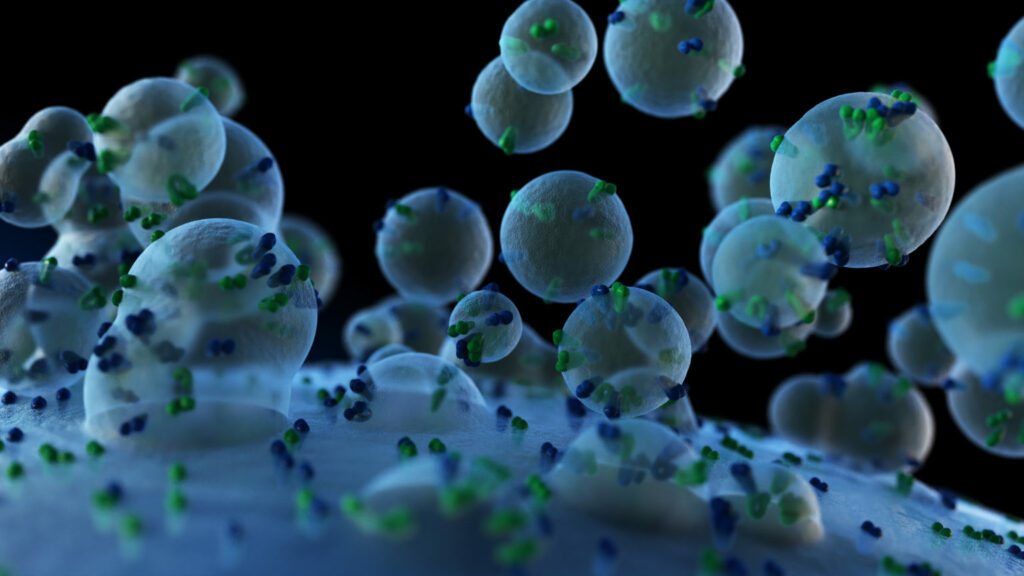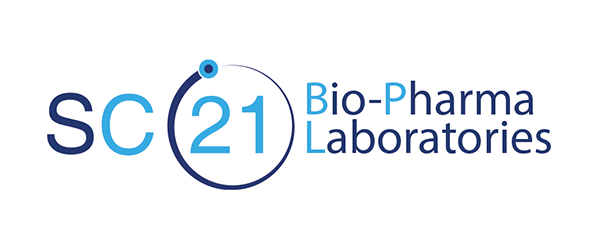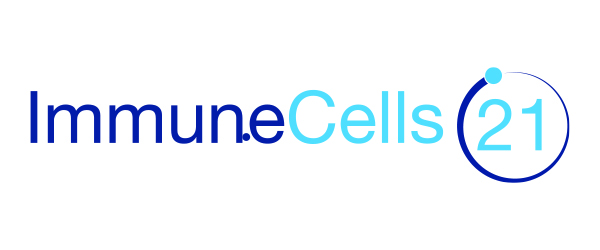MSC Extracellular Vesicles (Exosomes)

What are Extracellular Vesicles (EVs)
Extracellular vesicles (EVs) are small particles released by cells that are enclosed by a lipid bilayer, which means they are not simply fragments of the cell but structured packages. They are an important part of cell-to-cell communication and can be found in a variety of biological fluids, including blood, urine, and cerebrospinal fluid.
EVs can range in size from about 30 nanometers to several micrometers and can be classified into different categories, including:
Exosomes: Typically ranging from 30 to 150 nanometers, exosomes originate from the endosomal system and are released when multivesicular bodies fuse with the plasma membrane.
Microvesicles (or ectosomes): Usually larger than exosomes, microvesicles are typically 100 nanometers to 1 micrometer in diameter and are formed by the outward budding and fission of the plasma membrane.
Mesenchymal Stem Cell Extracellular Vesicles (MSC-EVs)
Mesenchymal stem cells (MSCs) are multipotent stromal cells that can differentiate into a variety of cell types and have the potential to repair body tissues. They also secrete extracellular vesicles (EVs), which have garnered considerable interest for their therapeutic potential. These EVs encapsulate a range of bioactive molecules, including proteins, lipids, and various forms of RNA, mirroring some of the regenerative, immunomodulatory, and anti-inflammatory properties of their parent MSCs.
The therapeutic potential of MSC-derived EVs includes:
Regenerative Medicine:
- Tissue Repair: MSC-derived EVs can promote the regeneration of damaged tissues, including bone, cartilage, and cardiac tissue, by enhancing cell proliferation and differentiation.
- Wound Healing: The growth factors and cytokines present in MSC-EVs can accelerate the healing process by promoting angiogenesis and the proliferation of skin cells.
Immunomodulation:
- Anti-inflammatory: EVs can have an anti-inflammatory effect by modulating immune responses, reducing the secretion of pro-inflammatory cytokines, and increasing the production of anti-inflammatory cytokines.
- Autoimmune Diseases: There is potential to treat autoimmune diseases by using EVs to alter the immune system’s behavior without the risks of integrating DNA into the patient’s genome, which is a concern with whole-cell therapies.
Anti-Cancer Properties:
- Inhibiting Tumor Growth: MSC-derived EVs can carry anti-proliferative substances to tumor cells, thereby inhibiting their growth.
- Modulating Tumor Microenvironment: They can also alter the tumor microenvironment, making it less conducive to cancer cell survival and spread.
Drug Delivery:
- Targeted Therapy: EVs can be engineered to deliver specific therapeutic agents directly to targeted cells, reducing the systemic side effects of drugs.
- Crossing Biological Barriers: Their ability to cross biological barriers, such as the blood-brain barrier, opens up opportunities for treating central nervous system diseases.
Cardiovascular Diseases:
- Cardioprotection: MSC-EVs can reduce the size of infarcted tissue in the heart following ischemia and promote angiogenesis, thereby improving heart function.
Neurological Disorders:
- Neuroprotection and Repair: EVs can promote neuronal growth and survival, and have potential in treating conditions like Parkinson’s disease, Alzheimer’s disease, and stroke recovery.
Kidney and Liver Diseases:
- Fibrosis and Repair: They can attenuate fibrosis and help in the repair of kidney and liver tissues following injury.
Key Facts About Mesenchymal Stem Cell Extracellular Vesicles (Exosomes)
Synergy of Combining MSCs and MSC-EVs (Exosomes) in Treatments
Mesenchymal stem cells, commonly referred to as MSCs, are multipotent cells with powerful regenerative, immunomodulation, anti-inflammatory effects. These cells have shown therapeutic potential in treating a variety of conditions, from degenerative diseases to anti-aging applications. One of the unique attributes of MSCs is their prolonged regenerative effects, providing personalised therapeutic benefits over a 6-month period and beyond. This sustained activity aids in long-term tissue repair and regeneration, giving the body ample time to heal naturally and efficiently, and rejuvenate itself.
To further enhance the efficacy of MSC therapy, we combine it with Exosomes. They are nano-sized vesicles that play a pivotal role in cell-to-cell communication. By supplementing MSCs with these exosomes, we amplify the therapeutic impact. These exosomes are rapidly taken up by various cell types in the body, offering initial therapeutic benefits that complement the sustained regenerative effects of the MSCs.
All stem cells used in our treatment programs are produced at our FDA registered SC21 Bio-pharma Laboratories : click here for more info






